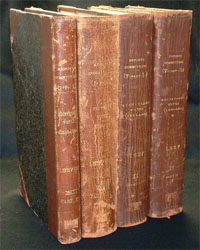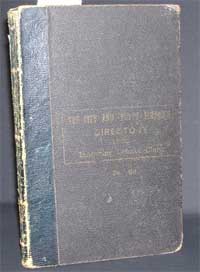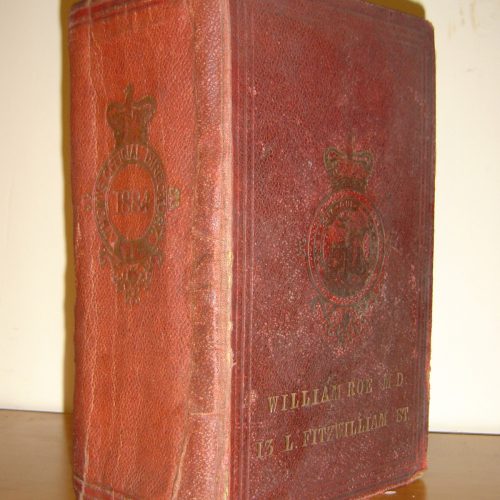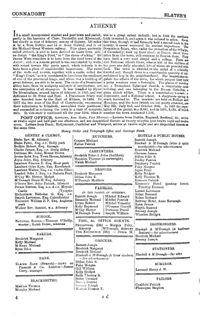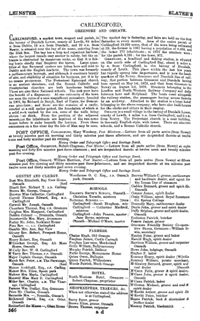Browse our range of products
Reports from Committees, Fictitious Votes (Ireland), Select Committee on Fictitious Votes, 1837-1838. Appendices Only
What is inside?
This publication details those eligible to vote in Ireland after the electorate had been greatly increased following the Great Reform Act of 1832. With over 70,000 names, with details of occupations, addresses and entitlement criteria to vote, this publication is one of the great untapped resources for the study of the Irish electorate in the 1830s. The Select Committee that Reported on electorate also sat and took evidence in the aftermath of Daniel O'Connell's election to Parliament when there had been widespread accusations of corruption and illegal voting, especially against the Liberal Candidates. While this publication does not reproduce the minutes of evidence given to the Select Committee on Fictitious Votes it does reproduce the voluminous Appendices and Indexes, which encompass some 900 pages. The usefulness and interest of these lists is manifold as is the plethora of other inaccessible material held in the reports of numerous Select Committees since 1801. In this instance the Commissioners of Police and Magistrates throughout Ireland were charged with the task of creating what amounted to an electoral register for those entitled to vote in Ireland between 1832 and 1837 under the terms of the Reform Act. In the instance of Ireland the electorate consisted of £10 freeholders and leaseholders, £20 leaseholders and freeholders, £50 freeholders and those in Corporation Towns, Cities and Boroughs afforded the right to vote as freemen of paid-up members of one of the trades guilds. The usefulness of the lists of the electorate, especially for the Corporation and other towns and cities in Ireland, returning Members of Parliament, cannot be over-emphasised. Only a handful of postal and/or street directories are extant for the majority of the towns and villages of Ireland. Whereas the major urban centres of Dublin and Belfast fair a great deal better, the list of voters provided by the Select Committee greatly adds to the available material on urban residents currently available. The voting lists provide the names of all those eligible to vote in rural districts of 32 counties of Ireland and also provides the names, addresses and voting qualifications for those residing in the borough towns of Ireland such as Sligo, Clonmel, Cashel, Dungannon, Lisburn, Enniskillen, which returned Members of Parliament. However, the most voluminous portions of the Lists provided by the Select Committee on Fictitious Votes details the electorate of the City of Dublin. These lists, in the main, span the periods 1832-37 and provides, street-by-street, the names, addresses and voting qualifications of Dublin's electorate. This is perhaps the most comprehensive and useful list of Dublin's residents prior to the first complete surviving Population Census for the City (1901). The Select Committee on Fictitious Votes also provides the names of all persons eligible to vote by dint of their membership of one of the trades guilds or as a freeman of the City. This list, in essence, names all the various guild members and freemen residing in the city in 1832 and in the case of the trades guilds, which include doctors, merchants and smiths, etc., the name of the father or name of the master craftsman of each, is also provided. The Select Committee on Fictitious Votes is concluded by a list of individuals who were brought to the attention of the Select Committee as fictitious voters, which includes the evidence brought against them, together with a breviate of the Select Committee as to the outcomes of their findings, which in some cases resulted in individuals being struck from the Electoral Register. In other cases those gathering evidence for the committee applauded landlords and land owners for increasing the electorate amongst the tenantry of their property. This republication of the Reports from the Select Committee on the Fictitious Votes, Ireland; with the Minutes of Evidence and Appendix, first published in 1837 and 1838 is presented here in digital format and is fully searchable.This title is a DOWNLOAD
Research Store.
Browse our range of products that can help trace your family ancestry and learn the story of your families history and past.
